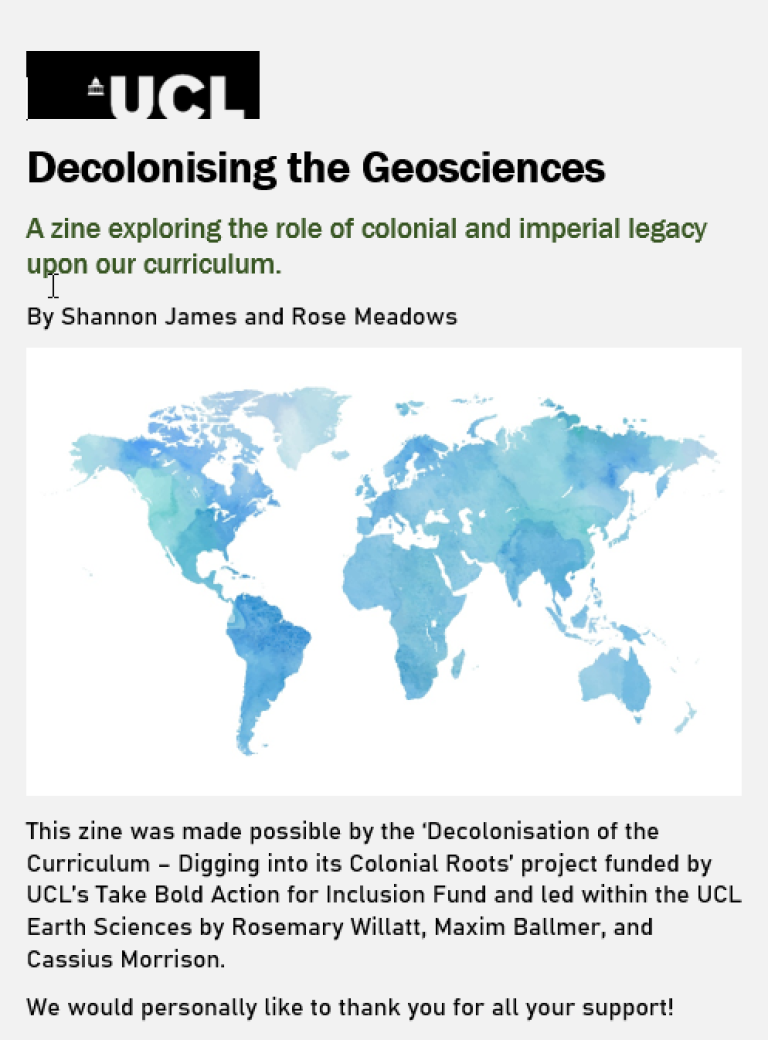Exploring the role of colonial and imperial legacy upon our curriculum.
Discussions of race and ethnicity in Earth Sciences have become increasingly prominent in recent years, with e.g. Dutt et al. (2020) and Dowey et al. (2021) discussing the history and status quo relating to race and ethnicity, and a 2022 Nature special issue on the topic. In collaboration with others such as members of our Ethnic Diversity Network and AstroNoir, we have explored this via a number of events and initiatives, seeking to understand what shapes our science and potential biases, inequalities or limitations relating to this.

At the entrance to the Bristol Museum and Art Gallery, just a few streets away from where the statue of Colston had been torn down and thrown into the river in 2020, I found a piece of text which provided context for visitors on how slavery related to the funders and building of the museum. Similarly, understanding the development of our science - by who, how, when, where and why - seemed a logical step to contextualising the research and teaching of past, present and future Earth Science.
A successful proposal on 'Decolonisation of the Curriculum - Digging into its colonial roots' to the UCL MAPS Take Bold Action for Inclusion fund allowed us to employ two students to undertake research on this topic. Shannon James and Rose Meadows worked independently, deciding to present their work in a zine, collecting together short passages on their findings. It was a challenging project: this is a complex political and emotive topic with myriad points of view. Our guidance was to try to seek out a range of sources of information, to think about language, consider fact vs opinion, and to make an accessible document that could provoke thought and discussion for others to delve deeper into relevant areas. We hope you find the outcome interesting and useful; links to additional resources are provided at the end.
A poster on this topic won joint first place and the zine was launched at our October 2023 Black History Month event.
Rosemary Willatt, Maxim Ballmer and Cassius Morrison
 Close
Close

